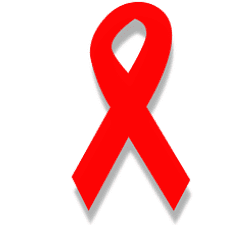Preventing HIV: Understanding Symptoms, Testing, and Treatment
Preventing the spread of HIV requires understanding the symptoms, testing, and treatment options to reduce transmission. The Human Immunodeficiency Virus (HIV) is a highly contagious viral infection that attacks the immune system. The virus can only be transmitted through specific activities, such as having unprotected sex, sharing needles during drug use, or breastfeeding. This article provides tips for preventing HIV spread and understanding the virus’s symptoms, testing, and treatment.
Importance of HIV Prevention
HIV is a chronic, incurable infection that can cause various health complications. Antiretroviral therapy (ART) is the only available medical treatment that can help prevent the virus from causing complications in the body. Therefore, HIV prevention is critical for both individuals and communities to reduce HIV transmission and prevent it from spreading further.
HIV Symptoms
There are different stages of HIV infection, which include:
1. Acute/Primary Infection: This is the early stage of HIV infection, which usually lasts for a few weeks after exposure to the virus. Symptoms can include fever, sore throat, rash, joint pain, and headache.
2. Clinical Latent Infection: After the initial acute stage, HIV becomes a dormant infection that can last for years. At this stage, the virus is still active, but it shows no visible symptoms.
3. Symptomatic HIV Infection: In this stage, the virus starts to damage the immune system, leading to symptoms such as fatigue, fever, night sweats, weight loss, and swollen lymph nodes.
4. AIDS: This is the final stage of HIV infection, where the virus has severely damaged the immune system, leading to various diseases and infections.
Preventing HIV Transmission
The most effective way to prevent HIV transmission is by stopping the spread of HIV from person to person. HIV is only transmitted through specific fluids from an infected person, such as blood, breast milk, anal fluid, vaginal fluid, and semen.
Here are a few tips for preventing HIV transmission:
1. Test for HIV: Testing for HIV is a crucial step in preventing the spread of the virus. Regular testing is recommended for individuals who are sexually active, as well as health care workers who may be at risk of exposure.
2. Practice Safe Sex: HIV can easily be transmitted through unprotected sex. Using condoms and taking PrEP medication can help lower the risk of transmission.
3. Limit Sexual Partners: Reducing the number of sexual partners can also help reduce the risk of HIV transmission.
4. Avoid Drug Use: Drug use, especially with shared needles and syringes, can expose individuals to HIV.
5. Do Not Share Needles: Sharing needles for drug use or other activities can increase the risk of HIV transmission.
HIV Treatment
Currently, there is no cure for HIV or AIDS. However, ART is available to help manage the virus and prevent complications. ART is a combination of different antiretroviral medications that work to suppress HIV’s activity in the body.
Final Thoughts
Preventing HIV transmission requires awareness, proactive measures, and basic understanding of the virus. That includes practicing safe sex, avoiding drug use, and regular testing. By taking these steps and working to mitigate risks, individuals can help prevent the spread of HIV and reduce the risk of complications caused by the virus.




